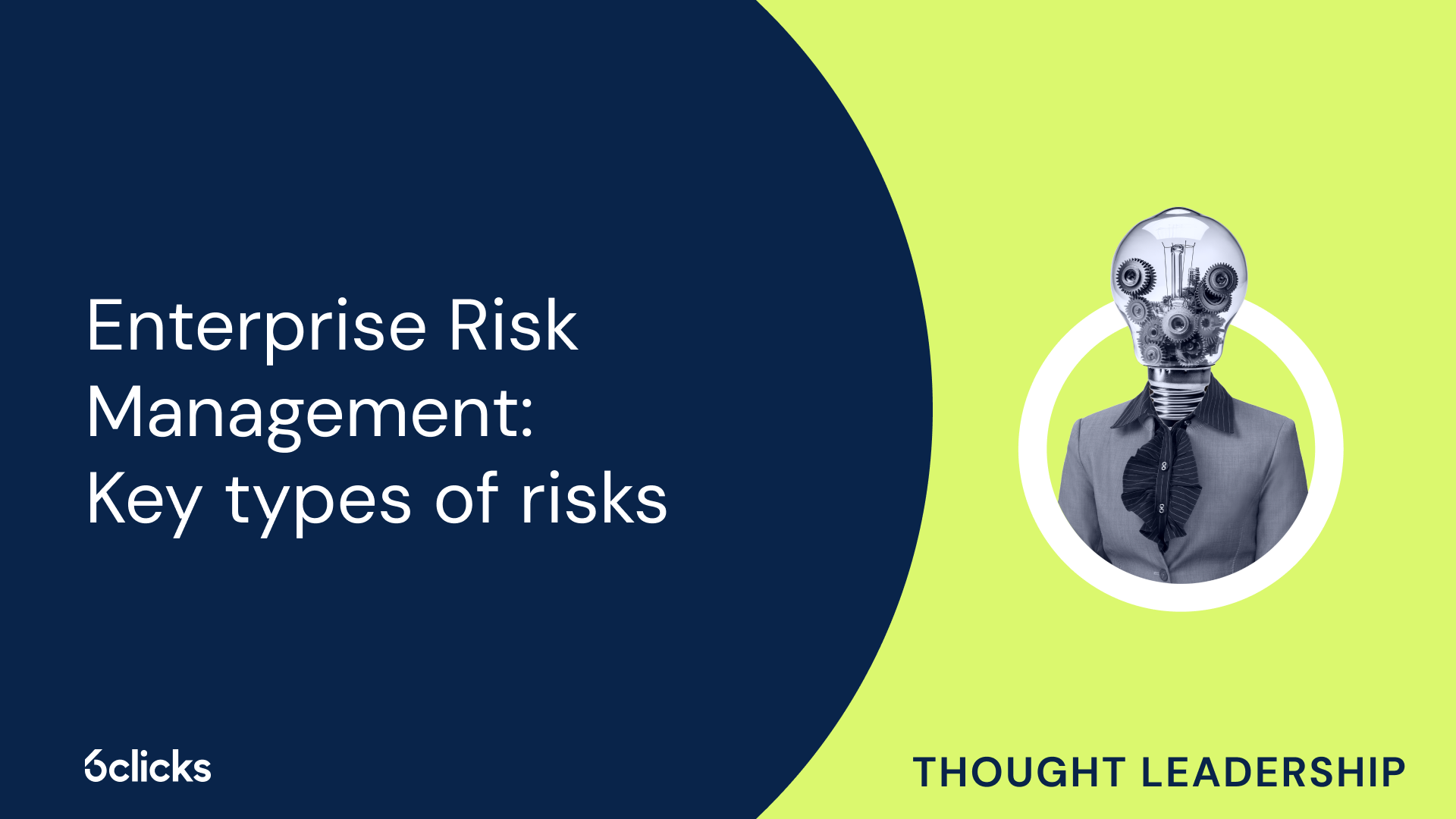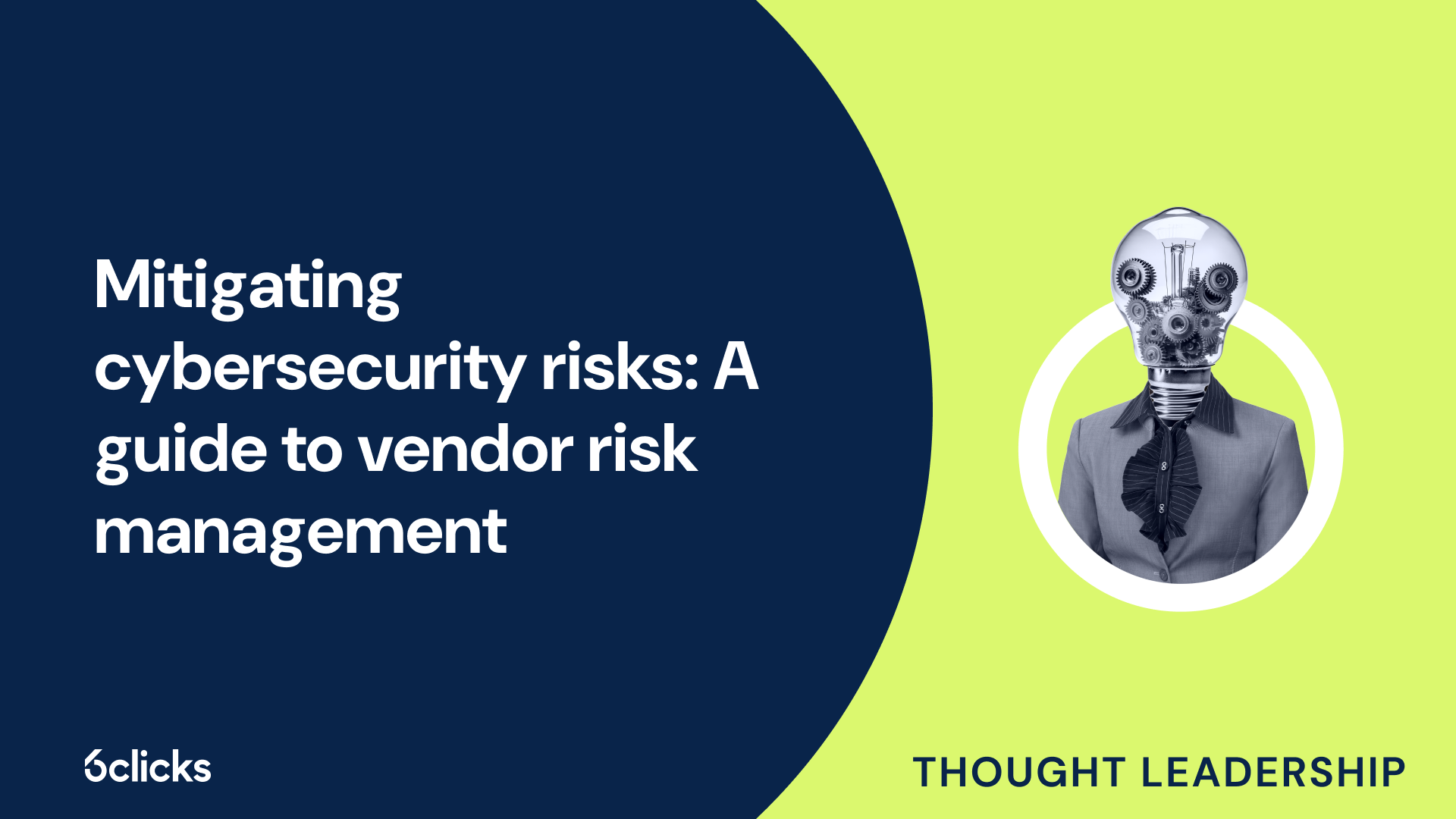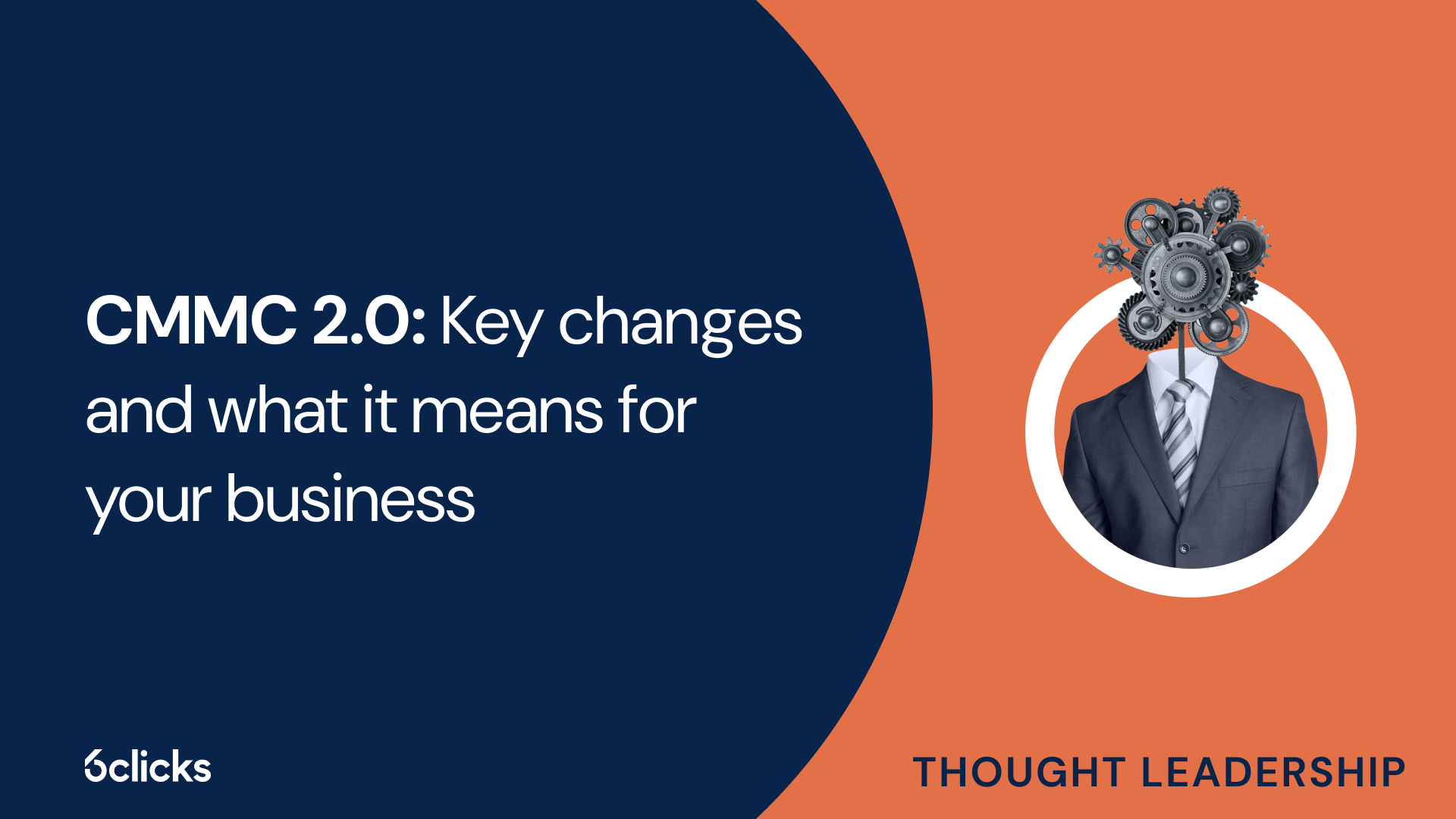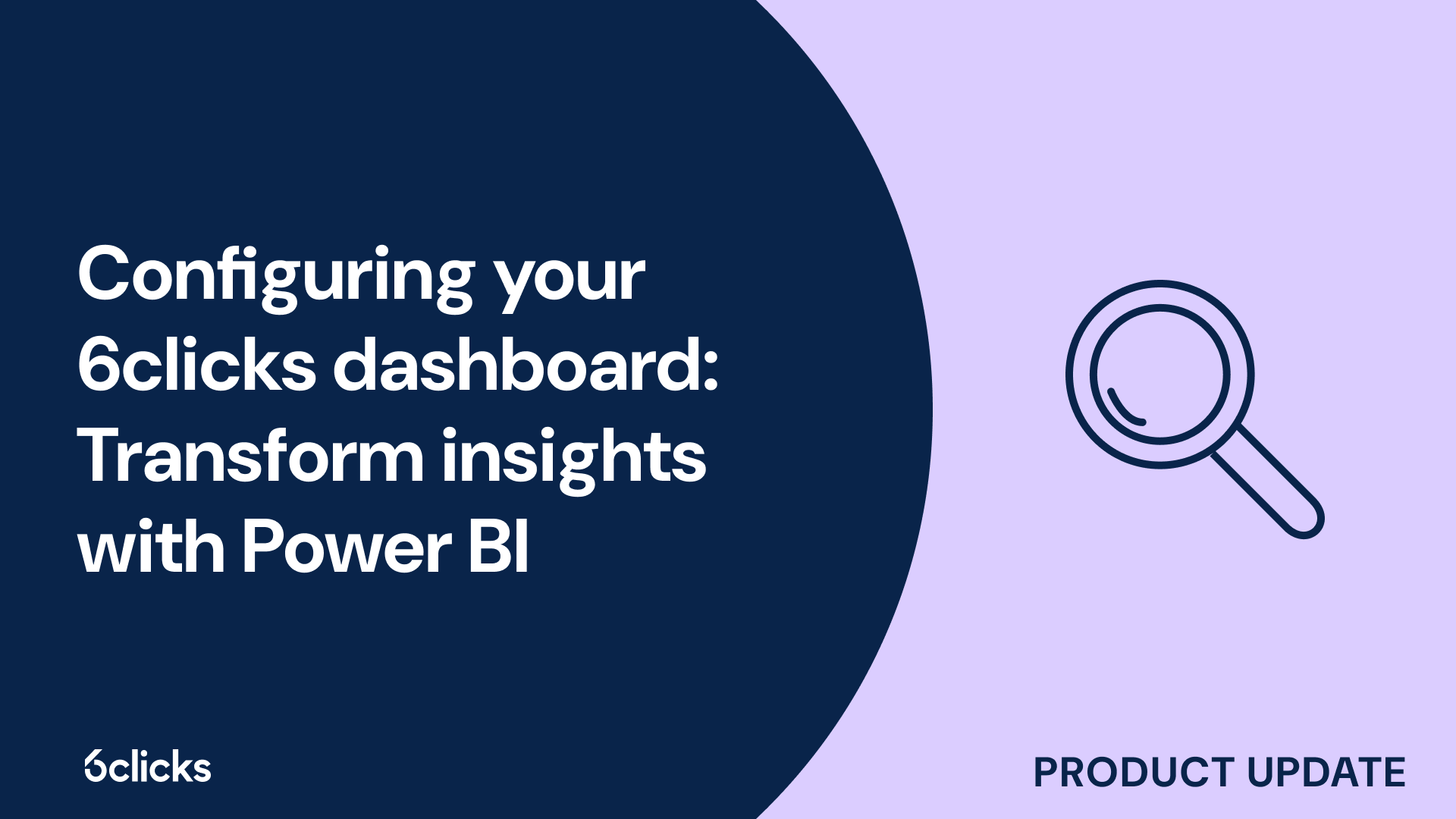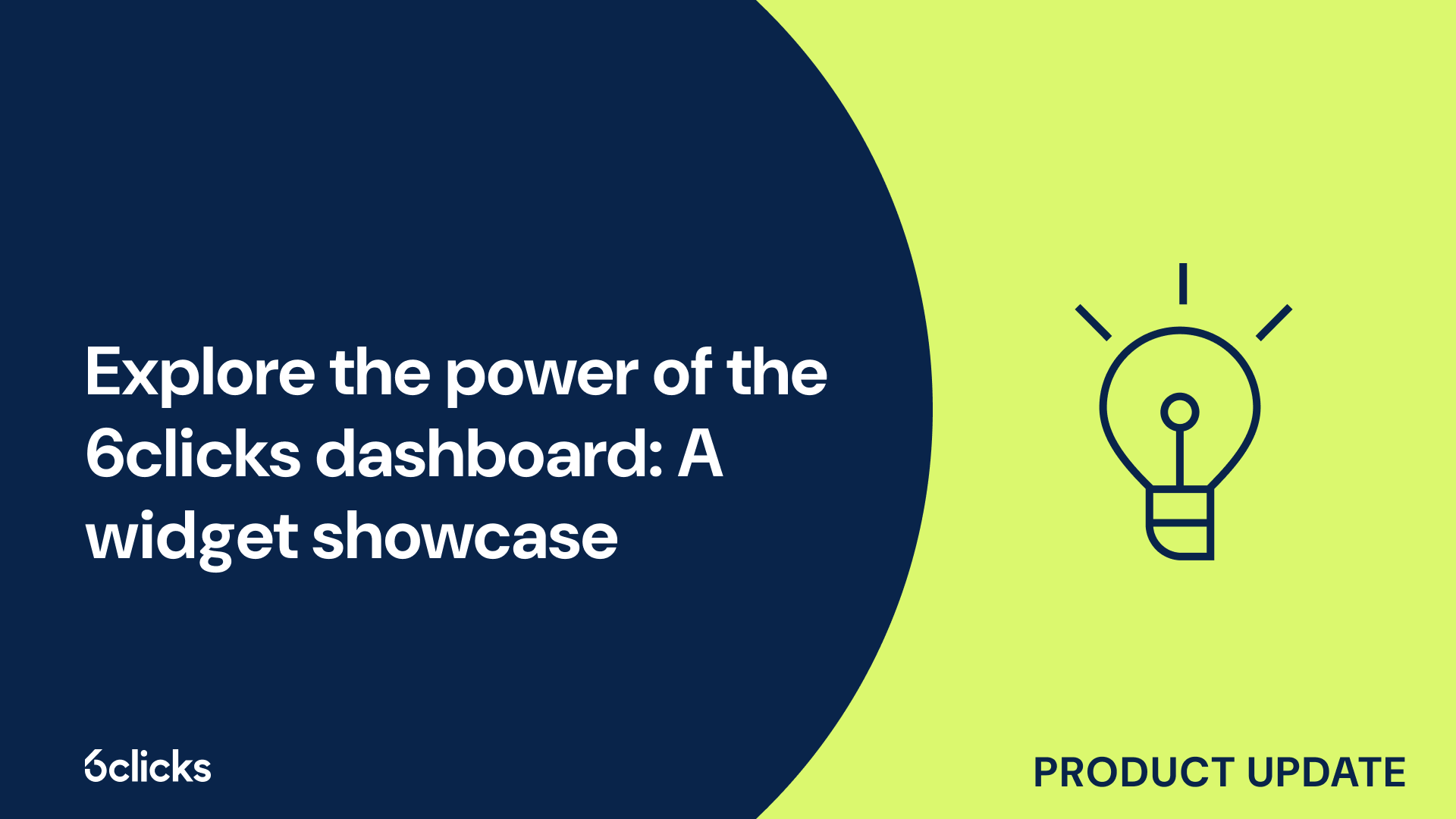The GRC buyer’s guide for 2025: Building resilience with AI-powered, federated solutions
-1.png?width=314&height=391&name=Group%20193%20(1)-1.png)
The GRC buyer’s guide for 2025: Building resilience with AI-powered, federated solutions
What is FedRAMP?
FedRAMP, short for Federal Risk and Authorization Management Program, is a government-wide program that provides a standardized approach to security assessment, authorization, and monitoring for cloud products and services. It was established in 2011 by the U.S. federal government to ensure the security and privacy of federal agency data in the cloud. FedRAMP provides a framework that cloud service providers must adhere to in order to obtain the necessary authorization to operate (ATO) for their cloud offerings. This program plays a vital role in enabling federal government agencies to leverage secure cloud solutions and take advantage of the numerous benefits offered by cloud technologies. By following the rigorous security standards set by FedRAMP, cloud service providers can demonstrate their commitment to protecting sensitive government data and gain the trust of federal agencies. The ultimate goal of FedRAMP is to streamline the authorization process and provide federal agencies with a marketplace of pre-approved, secure cloud service offerings that meet their specific needs.
What is cloud computing?
Cloud computing is the delivery of on-demand computing resources over the internet. It allows organizations to access and manage data and applications remotely, without the need for physical infrastructure or on-premises servers. This concept is particularly relevant in the context of the Federal Risk and Authorization Management Program (FedRAMP), which oversees the security authorization process for cloud service providers seeking to work with federal agencies.
Cloud computing offers many benefits for organizations, including scalability and flexibility. With cloud services, organizations can easily scale their resources up or down based on their needs, allowing for increased efficiency and cost savings. Additionally, cloud computing enables remote data access, allowing employees to access and collaborate on information from anywhere, anytime.
Security is also a key advantage of cloud computing. Cloud service providers invest heavily in security measures to protect data and infrastructure. This includes implementing encryption protocols, monitoring for potential threats, and conducting regular security audits. By leveraging the expertise and resources of cloud service providers, organizations can enhance their security posture and ensure compliance with industry standards and regulations such as FedRAMP.
Is FedRAMP for cloud only?
FedRAMP, short for Federal Risk and Authorization Management Program, is a government-wide program that provides a standardized approach to security assessments for cloud products and services. While FedRAMP focuses primarily on cloud solutions, its scope extends beyond just cloud services. It is applicable to different types of IT solutions, including Software-as-a-Service (SaaS), Infrastructure-as-a-Service (IaaS), and Platform-as-a-Service (PaaS).
The primary purpose of FedRAMP is to ensure the security of cloud services used by federal agencies. It offers a uniform evaluation and authorization process, streamlining the security assessment and authorization process for cloud providers. By using FedRAMP-authorized cloud service providers, federal agencies can save both time and costs by avoiding the need for individual security assessments.
FedRAMP offers several benefits for cloud solutions. Firstly, it enables a more efficient and cost-effective approach to security assessments. Rather than each federal agency conducting their own assessment, a single assessment can be leveraged by multiple agencies. This eliminates duplicative efforts and saves resources for both the agencies and cloud service providers.
Secondly, FedRAMP provides a standardized framework for evaluating the security controls of cloud services. This allows federal agencies to have a consistent understanding of the security posture across different cloud providers and makes it easier to compare and choose the most secure options.
Lastly, FedRAMP offers enhanced insights into cloud security controls. With a continuously evolving catalogue of authorized cloud services, federal agencies can leverage the lessons learned and best practices identified through the FedRAMP process, ensuring that their cloud solutions meet the highest security standards.
Benefits of FedRAMP for cloud solutions
The benefits of FedRAMP for cloud solutions are significant. Firstly, it offers a more efficient and cost-effective approach to security assessments. By eliminating the need for individual assessments by each federal agency, resources can be saved for both agencies and cloud service providers. This streamlined approach not only saves time but also reduces duplication of efforts.
Secondly, FedRAMP provides a standardized framework for evaluating the security controls of cloud services. This allows federal agencies to have a consistent understanding of the security posture across different cloud providers and makes it easier to compare and choose the most secure options. With a standardized approach, agencies can ensure that the cloud services they are adopting meet the necessary security requirements.
Lastly, FedRAMP offers enhanced insights into cloud security controls. Through a continuously evolving catalog of authorized cloud services, federal agencies can learn from the lessons and best practices identified during the FedRAMP process. This ensures that their cloud solutions meet the highest security standards and are continually updated to address emerging threats. Ultimately, by leveraging FedRAMP, federal agencies can confidently adopt cloud solutions that meet their security needs while saving time and resources.
Security standards and requirements
The security standards and requirements associated with the FedRAMP program are designed to ensure the confidentiality, integrity, and availability of federal agency data in cloud environments. These standards are established to protect sensitive information and prevent unauthorized access.
Cloud service providers must meet specific criteria to ensure compliance with the FedRAMP program. These criteria include implementing appropriate security controls, conducting regular security assessments, and adhering to continuous monitoring and incident response processes. Providers are also required to have a documented and tested disaster recovery plan in place.
Key security control requirements for FedRAMP authorization include access control, data encryption, vulnerability management, and incident response. Cloud service providers are responsible for implementing these controls and regularly monitoring and reporting on their effectiveness.
The concept of the CIA Triad, which stands for Confidentiality, Integrity, and Availability, is of utmost importance in the FedRAMP authorization process. The CIA Triad principles ensure that data is kept confidential, remains intact and unaltered, and is readily accessible to authorized users. By adhering to the CIA Triad principles, cloud service providers can effectively protect federal agency data and meet the security requirements of the FedRAMP program.
Authority to operate (ATO) process
The Authority to Operate (ATO) process is a crucial step in the FedRAMP program that ensures cloud service providers meet the necessary security standards to operate within the federal government. This process involves a thorough evaluation and approval by federal agencies to grant ATO to a cloud service provider.
The ATO process begins with the submission of a comprehensive security package by the cloud service provider. This package includes documentation on the implementation of security controls, security assessments, and a detailed description of the provider's system. The Federal Risk and Authorization Management Program (FedRAMP) office then reviews the package to ensure it meets the required security standards.
Once the package is reviewed, the cloud service provider undergoes a security assessment. This assessment is conducted by an independent third party, known as a FedRAMP-accredited Third Party Assessment Organization (3PAO). The 3PAO evaluates the provider's system against the FedRAMP security requirements and produces a security assessment report.
After the security assessment, the cloud service provider's package, along with the assessment report, is presented to the appropriate federal agency. The agency then reviews the package to make a determination on granting ATO. There are two types of ATO that can be granted: the Joint Authorization Board (JAB) provisional authorization and agency-specific ATO.
The JAB provisional authorization is a rigorous process led by a panel of security experts from different federal agencies. It allows a cloud service provider to offer their services to multiple federal agencies. The agency-specific ATO is granted by individual federal agencies to use the cloud service provider's services for their specific needs.
The ATO process is vital for cloud service providers as it demonstrates their ability to meet the high-security standards required by federal agencies. This process allows the federal government to ensure the security and reliability of their cloud service offerings, ultimately protecting sensitive data and ensuring the successful adoption of cloud technologies.
Monitoring of cloud products and services
Monitoring is a critical aspect of ensuring the security and compliance of cloud products and services in the federal government. As part of the Federal Risk and Authorization Management Program (FedRAMP), monitoring plays a key role in maintaining the security and efficiency of cloud solutions.
FedRAMP provides a standardized approach to monitoring for cloud products and services used by federal agencies. This means that all cloud service providers must follow a consistent set of monitoring requirements and procedures. This standardized approach ensures that federal agencies can trust that the cloud service providers they use are meeting the necessary security standards.
Continuous monitoring is a fundamental component of the FedRAMP program. It involves the ongoing assessment and observation of cloud solutions to identify and mitigate potential security risks. This proactive approach to monitoring allows for real-time detection of threats and vulnerabilities, minimizing the impact on federal agencies' operations.
Continuous monitoring provides numerous benefits in terms of security and efficiency. It allows for the timely identification and resolution of security issues, reducing the risk of data breaches and other cybersecurity incidents. By continuously monitoring cloud solutions, federal agencies can ensure that their sensitive data remains secure while also meeting compliance requirements.
Standardized approach to security assessments
The FedRAMP program utilizes a standardized approach to security assessments to ensure consistency and effectiveness across cloud service providers. This approach involves a comprehensive evaluation of the security controls implemented by the providers to protect federal agency data.
Third-party assessors play a vital role in the security assessment process. These independent organizations are responsible for reviewing the implementations of FedRAMP by the cloud service providers. They thoroughly assess the security controls in place, making sure they meet the established security requirements outlined by FedRAMP.
During the assessment, the third-party assessors conduct detailed evaluations of the cloud service provider's security documentation, systems, and processes. They also perform vulnerability scans and penetration testing to identify any potential weaknesses or vulnerabilities.
Based on their findings, the assessors prepare Security Assessment Reports (SARs) to document the compliance status of the cloud service provider. These reports outline the results of the assessment, including any identified vulnerabilities or areas of improvement. The SARs provide federal agencies with transparency into the security posture of the cloud service provider and help them make informed decisions about their use of the provider's services.
This standardized approach to security assessments ensures that all cloud service providers undergo a consistent evaluation process, promoting a high level of security and compliance within the FedRAMP program.
Provisional authorization for new technologies in the cloud
Provisional authorization plays a crucial role in enabling the adoption of new technologies in the cloud by federal agencies. This process allows cloud service providers to offer their services to these agencies before achieving full authorization under the Federal Risk and Authorization Management Program (FedRAMP).
When a cloud service provider introduces a new technology or service, it may not yet meet all the rigorous security requirements outlined by FedRAMP. However, by obtaining provisional authorization, they can still offer their services to federal agencies while working towards achieving full authorization.
The provisional authorization process involves a comprehensive assessment of the new technology's security controls, documentation, and processes. This assessment is conducted by third-party assessors who evaluate the technology's compliance with FedRAMP's security standards. If the assessment determines that the technology meets the necessary security requirements and demonstrates a strong security posture, the provider can receive provisional authorization.
The benefits of provisional authorization are twofold. First, federal agencies gain access to innovative cloud technologies sooner, enabling them to leverage the latest advancements and capabilities to meet their mission requirements. Second, cloud service providers can offer their services to federal agencies, expanding their market reach and fostering innovation within the cloud industry.
Who uses FedRAMP?
FedRAMP is utilized by various stakeholders within the federal government. Federal agencies and government organizations are the primary users of FedRAMP, as they rely on cloud service providers to meet their IT and data storage needs. These agencies span across different sectors, including the Department of Defense, healthcare, finance, and many others. By leveraging the FedRAMP program, federal agencies can ensure that the cloud services they adopt meet stringent security standards and adhere to the necessary compliance requirements. Additionally, cloud service providers can also benefit from FedRAMP by obtaining authorization to offer their services to federal agencies. This allows them to tap into a vast customer base and expand their market reach in the public sector. Overall, FedRAMP plays a crucial role in facilitating secure and trusted cloud computing solutions for federal government agencies and their trusted cloud service providers.
Federal agencies and departments
Federal agencies and departments play a crucial role in the implementation and management of the Federal Risk and Authorization Management Program (FedRAMP). The program is a standardized approach to security assessment, authorization, and continuous monitoring for cloud products and services used by federal government agencies.
Key agencies and departments involved in FedRAMP include the National Institute of Standards and Technology (NIST), the General Services Administration (GSA), and the Department of Defense (DoD).
NIST develops and maintains the security standards and guidelines that serve as the foundation for FedRAMP. They provide the security control baseline and requirements that cloud service providers must meet to achieve FedRAMP compliance.
The GSA acts as the program management office for FedRAMP. They oversee the authorization process and maintain the FedRAMP marketplace, a secure repository of authorized cloud service offerings. The GSA also provides support and guidance to federal agencies throughout the assessment and authorization process.
The DoD focuses on security requirements specific to its own cloud service offerings. They have their own designated agency authority to operate (ATO) process and are responsible for assessing and granting ATOs for cloud services used by DoD agencies.
Government contractors requiring a secure cloud solution
Government contractors requiring a secure cloud solution can greatly benefit from FedRAMP authorization. By partnering with a FedRAMP-Authorized Cloud Service Provider (CSP), these contractors can ensure that their cloud services meet the rigorous security requirements mandated by the federal government.
Working with a FedRAMP-Authorized CSP provides several advantages. Firstly, it offers a higher level of security assurance. These CSPs have undergone a thorough assessment and authorization process, ensuring that their cloud services comply with the stringent FedRAMP security controls. This means that government contractors can trust that their data and systems are protected against potential cyber threats.
Additionally, utilizing a FedRAMP-Authorized CSP results in significant cost and time savings. Government contractors no longer need to engage in individual assessments and authorizations, as the FedRAMP program provides a standardized approach. This streamlines the evaluation and authorization of cloud security controls, allowing contractors to quickly deploy their secure cloud solution.
Moreover, the FedRAMP framework offers enhanced insights into cloud security controls. Government agencies can evaluate and compare the security posture of different CSPs based on their FedRAMP certifications. This transparency empowers agencies to make informed decisions when selecting a cloud vendor, ensuring that their data remains secure.
Department of defense (DoD) and federal government agency partnerships
The Department of Defense (DoD) and federal government agencies have established strong partnerships to ensure the security and compliance of their cloud computing environments. FedRAMP, the Federal Risk and Authorization Management Program, plays a crucial role in meeting the cloud computing security requirements of the DoD and other federal agencies.
FedRAMP provides a standardized and rigorous approach to assess and authorize cloud service providers (CSPs) for use by federal agencies. It establishes a set of security controls and requirements that CSPs must adhere to in order to achieve FedRAMP compliance. This framework aligns with other federal compliance programs such as the Federal Information Security Modernization Act (FISMA), Defense Federal Acquisition Regulation Supplement (DFARS), DoD Security Requirements Guide (SRG), National Institute of Standards and Technology Special Publication 800-171 (NIST SP 800-171), and Federal Information Processing Standard 140-2 (FIPS 140-2).
By leveraging FedRAMP, the DoD and other federal agencies can ensure that their cloud service providers meet the necessary security standards and protect sensitive data. This partnership allows for a consistent and standardized approach to cloud security across the federal government, promoting interoperability, cost efficiency, and enhanced security posture.
How does FedRAMP certification work?
FedRAMP certification is a vital process that allows cloud service providers (CSPs) to gain authorization to offer their services to federal agencies. This certification ensures that the cloud offerings meet the stringent security standards and requirements established by the Federal Risk and Authorization Management Program (FedRAMP). By obtaining FedRAMP certification, CSPs demonstrate their ability to protect sensitive data and enable federal government agencies to benefit from secure cloud solutions. In this article, we will explore the step-by-step process of how FedRAMP certification works, from initial assessment to continuous monitoring, and highlight the key components involved in the authorization process.
Impact levels defined by the program
FedRAMP, the Federal Risk and Authorization Management Program, defines three impact levels to assess the sensitivity and criticality of data stored or processed in cloud service offerings. These impact levels indicate the security standards and controls required to protect federal agency data.
The three impact levels are Low, Moderate, and High. Each level corresponds to different security requirements and controls based on the sensitivity and criticality of the data.
At the Low impact level, the data is considered less sensitive and has a lower impact on an organization if compromised. Security requirements for this level focus on baseline protection measures, such as encryption and access controls.
The Moderate impact level covers data that is more sensitive and critical to an organization. Security standards for this level are more stringent, including additional controls to safeguard data integrity and availability.
The High impact level applies to highly sensitive and critical data, such as classified or national security information. The security requirements at this level are the most rigorous, addressing advanced threat protection, continuous monitoring, and incident response capabilities.
By defining these impact levels and associated security standards, FedRAMP provides a standardized approach for federal agencies to assess and authorize cloud service providers. This ensures that data stored or processed in cloud environments aligns with the appropriate level of protection based on its sensitivity and criticality.



